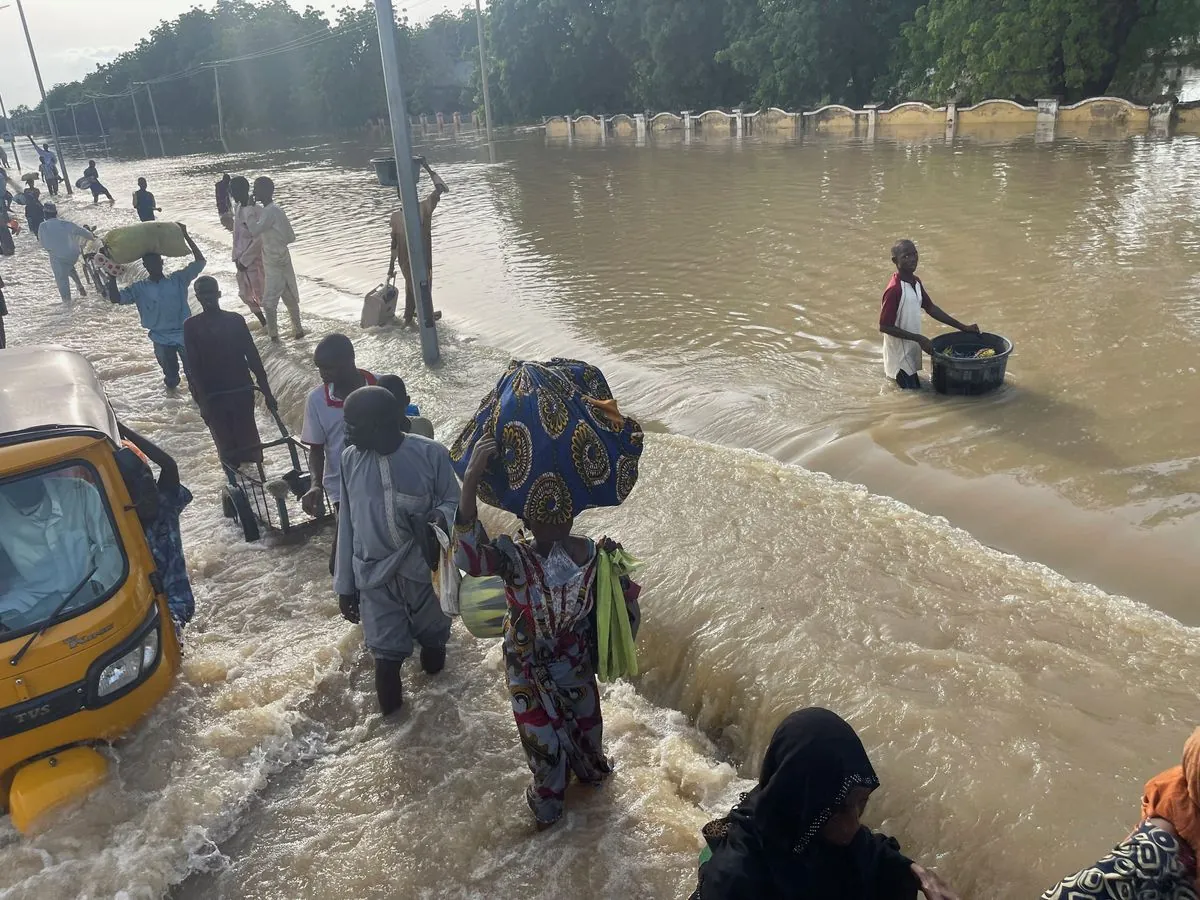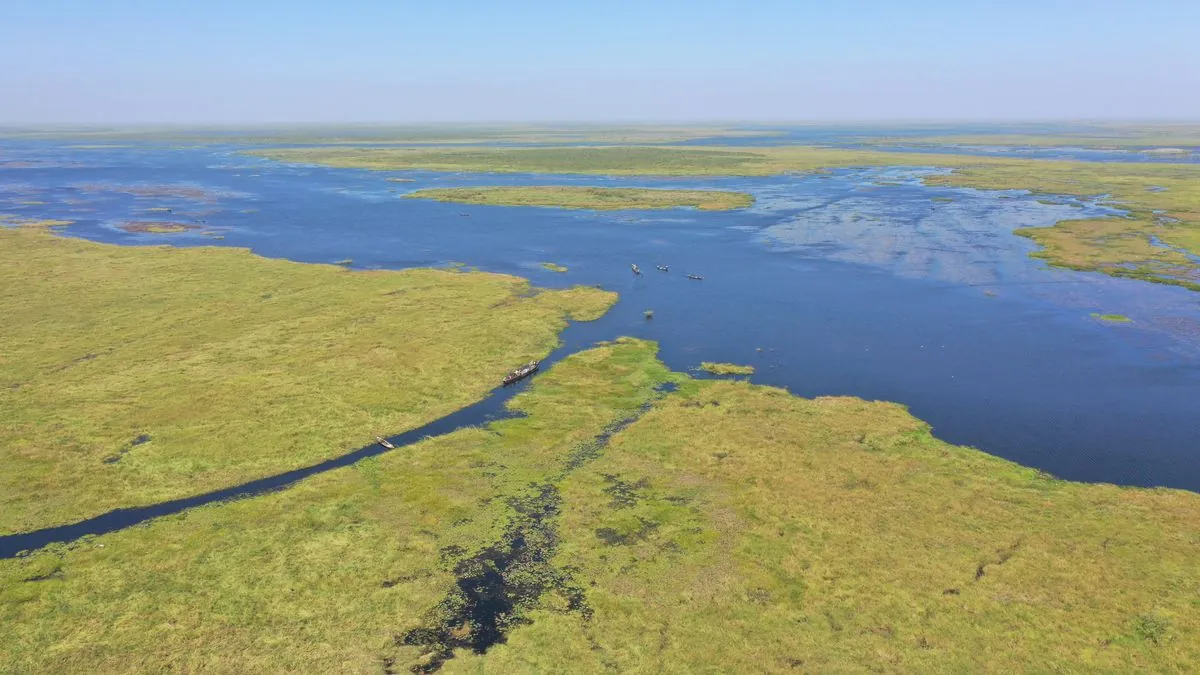Deadly Floods in Nigeria's Borno State Spark Health Crisis
Severe flooding in northeastern Nigeria has claimed over 30 lives and affected a million people. Aid agencies warn of waterborne disease outbreaks as medical care becomes scarce in overwhelmed camps.

In a devastating turn of events, Borno State in northeastern Nigeria is grappling with the aftermath of severe flooding, resulting in a mounting health crisis. The deluge, caused by a dam burst following heavy rainfall, has claimed over 30 lives and affected approximately one million individuals, most of whom are now residing in overcrowded camps lacking essential resources.
The flooding, described as the worst to hit the region in three decades, has not only impacted Borno State but also extended to neighboring countries in the Sahel region, including Cameroon, Chad, Mali, and Niger. This semi-arid belt of land stretching across North Africa, typically characterized by minimal rainfall, has been unexpectedly inundated, leading to widespread displacement and loss of life.

According to the United Nations Office for the Coordination of Humanitarian Affairs (OCHA), the last two weeks of August 2024 saw over 1.5 million people displaced across 12 countries in West and Central Africa due to floods, with approximately 465 fatalities reported. The situation further deteriorated over the weekend of September 14-15, 2024, when an additional 50,000 individuals were displaced in northeastern Nigeria as flood waters intensified.
The Norwegian Refugee Council (NRC), an international humanitarian organization, has expressed grave concern over the escalating crisis. Hassane Hamadou, NRC's Central and West Africa regional director, stated:
"The situation in the Sahel and Lake Chad region is increasingly dire, as the compounding effects of conflict, displacement and climate change take a severe toll on vulnerable populations."
The floods have exacerbated an already critical humanitarian situation in Borno State, the birthplace of Boko Haram militants. The region, which has long struggled with the impacts of insurgency and displacement, now faces the additional challenge of waterborne diseases and malnutrition.
In Maiduguri, the capital of Borno State, displaced individuals are struggling to access medical care. Bintu Amadu, a mother seeking treatment for her son's diarrhea, shared her frustration: "We have not received any aid, and our attempts to see a doctor have been unsuccessful. We have been waiting for medical attention since yesterday, but to no avail."
Mathias Goemaere, a field coordinator for Médecins Sans Frontières (MSF), highlighted the compounding health risks faced by the affected population. He explained that even before the floods, residents in Borno were grappling with malnutrition due to years of conflict that had driven people from their farms. The current situation has exposed them to waterborne diseases, diarrhea, and malaria, with their compromised immune systems making them more susceptible to illness.
As aid agencies struggle to cope with the scale of the disaster, there are growing concerns about the potential for flooding in other parts of Nigeria. The government has warned of rising water levels in the country's largest rivers, the Niger and Benue, which could lead to floods in the oil-producing Niger Delta region in the south.
This crisis underscores the urgent need for coordinated international assistance and long-term strategies to address the impacts of climate change and conflict in vulnerable regions like the Sahel. As the situation continues to evolve, the focus remains on providing immediate relief to those affected while working towards sustainable solutions to prevent future catastrophes.


































